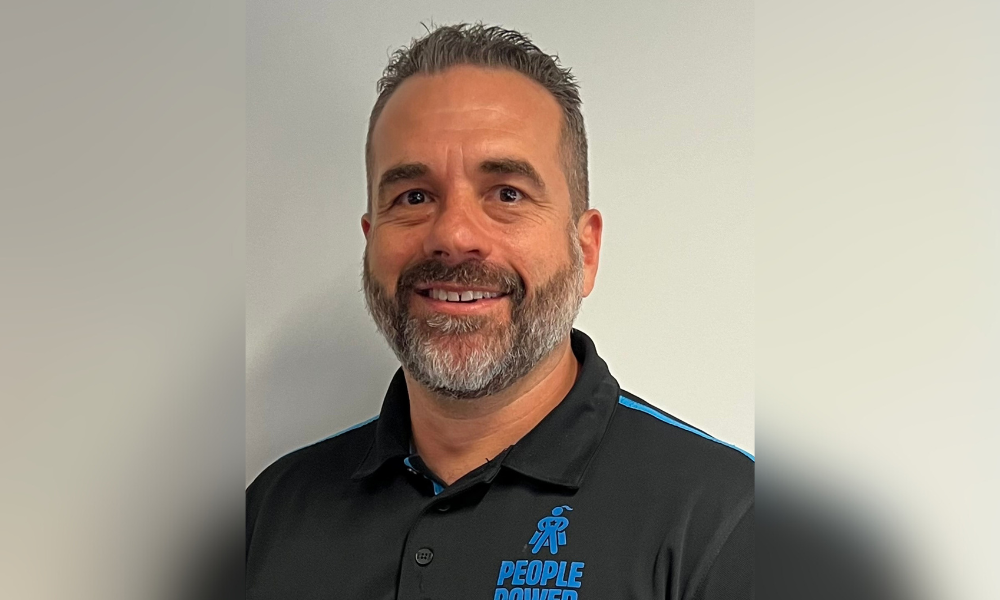
Michael Oliverio of Hungry Jack's says high-pressure environment paves the way for successful career

Where does a career start? If you asked some of the parents Michael Oliverio overhears at careers expos, it doesn’t start behind the counter of a burger chain.
“It’s not uncommon to overhear a parent say to a child, ‘You don’t want to work in a fast-food restaurant.’”
If some people think there’s a stigma attached to working for a QSR – or quick-service restaurant – that’s a shame, because all three of Oliverio’s kids have done it and done well. Dipping fries and mopping floors can take you places.
“If you can handle yourself within a high-pressure environment of a QSR kitchen on a Friday night, when you’re down two people and a busload of tourists turns up, then you can handle yourself in any environment,” says Oliverio, head of benefits and engagement at Hungry Jack’s.
“It teaches you resilience, it teaches you how to prioritise tasks. I’d love to be able to change the perception of QSR, so that people don’t see it as a stepping stone.”
Oliverio’s own path into HR started in operations.
“Then, a few years ago, I recognised there will be a big shift towards people,” he says. “Yes, automation and technology will somewhat replace some careers or enhance others, but technology will not have that human element. We can train it, we can teach it and we can coach it, but there’s always going to be something humans have that a computer will never have.”
Oliverio is currently taking a master’s in human resource management to complement an MBA competed in 2017.
“I want to make sure we create psychologically safe working environments where people feel valued, where they feel they can bring their authentic selves to work every day. That’s important to me. That’s why I went into people and culture.”
Hungry Jack’s has about 27,500 on the payroll, spread across 466 restaurants, a head office in Sydney and offices in Melbourne, Brisbane, Adelaide and Perth. And Oliverio knows many new workers come onboard with a notion the job is an entry to business.
He has heard the narrative that young people these days are disruptive or they push back.
“But I actually feel it’s slightly different,” he tells HRD. “From a much younger age, during school, they’re encouraged to speak up, to speak out, to be curious, to ask questions.”
It can be a bit of a rude shock when younger people join the workforce and learn they are expected to stick to processes. Hungry Jack’s is like that too — but it is also a little different, Oliverio says.
“In our business, we encourage those younger people to be curious, and they are naturally curious. They want to know how things work. They want to get involved. They want to be future leaders. They want to be able to be problem-solvers and apply critical thinking,” he says.
The trick is to take something that can be a bit repetitive and allow room for a sense of ownership. This is where numbers come in, as sales-hour or drive-through metrics become tangible targets.
“From there, it’s just allowing them to naturally follow the path they want to follow,” he says. “They are very curious about business and they want to understand how money works – and we don’t teach that at school – so there’s an opportunity to learn it through the workplace.”
Once the important processes are mastered – how to make a burger, how to mop a floor, how to clean equipment – opportunities might pop up to become a shift leader or training coach.
“That’s when we start to teach more emotional intelligence and soft skills,” he says. “We teach them about empathy, about leading self first and then leading people, as they move their way through that program.”
A fast-food restaurant is a high-pressure environment. If one of the crew calls in sick, and they perform a certain operation within that team, it makes a difference.
“It’s really important you have a leader in the business who’s able to communicate in a way which brings everyone together,” Oliverio says. “We coach people on how to recognise if someone’s feeling overwhelmed, and remove them from that situation or relocate them and bring other people in.
“For it to be a smooth operation, you need to have that extra skill … to make sure we have that sense of belonging, that sense of community and support.”
Hungry consumers might not always appreciate life behind the counter is go-go-go, with allocated breaks, hot oil, hot grills, sharp knives.
“You have to keep yourself psychologically safe and physically safe as well. It’s super important,” he says.
Hungry Jack’s employees range from generation alpha (born after 2010) to nearing retirement. The current head of operations has been with the company more than 30 years. Commonly, however, workers are on their way to other pathways, such as university or whatever comes next.
“QSR is often a really good foundation for a lot of kids to work out what they want to do from there,” he says. The ones who stay might qualify to work their way up to become restaurant managers or growth mindset partners.
Hungry Jack’s is a family-owned company, with 400 of the restaurants owned by Jack Cowan. This allows more opportunity than in chains where franchises are common, Oliverio says.
“We have a program where restaurant managers can have partnership in corporately run restaurants and earn extra incentives and bonuses.”
Finally, a reward and recognition program by Reward Gateway sees workers earning e-cards for hitting outcomes or displaying behaviour that aligns with company values. “It’s definitely visible,” he says.
Reward Gateway was awarded as Best HR Software Vendors in Australia and New Zealand. Read the report here.